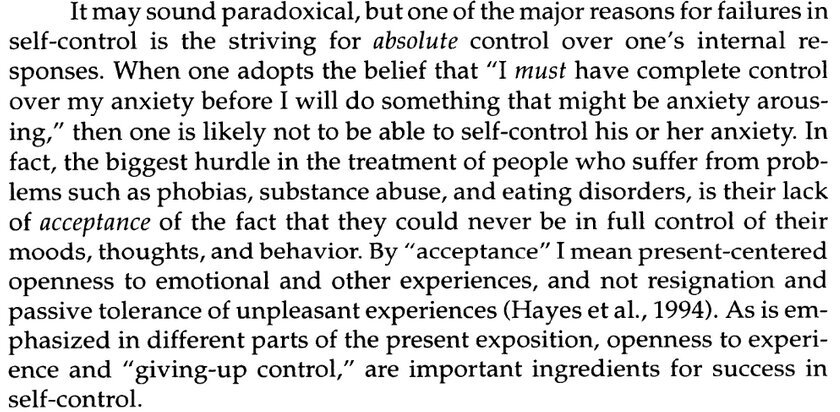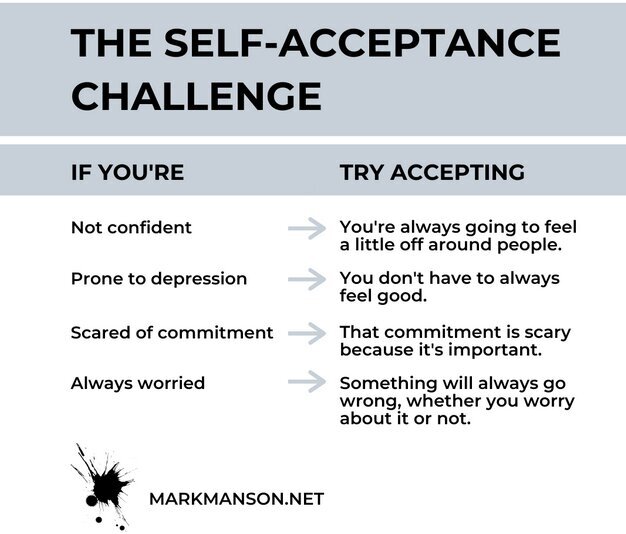
The main goal of acceptance and commitment therapy (ACT) is to increase psychological flexibility. ACT is a form of therapy that aims to help people accept unavoidable events, identify actions that will lead to goals, and acknowledge thoughts rather than accepting or disregarding them.[21] When psychological flexibility was targeted in one study of ACT, there was a stronger reduction in psychological distress.[22] There are six core processes in ACT interventions: acceptance, cognitive defusion, self as context, being present, values, and committed action.




